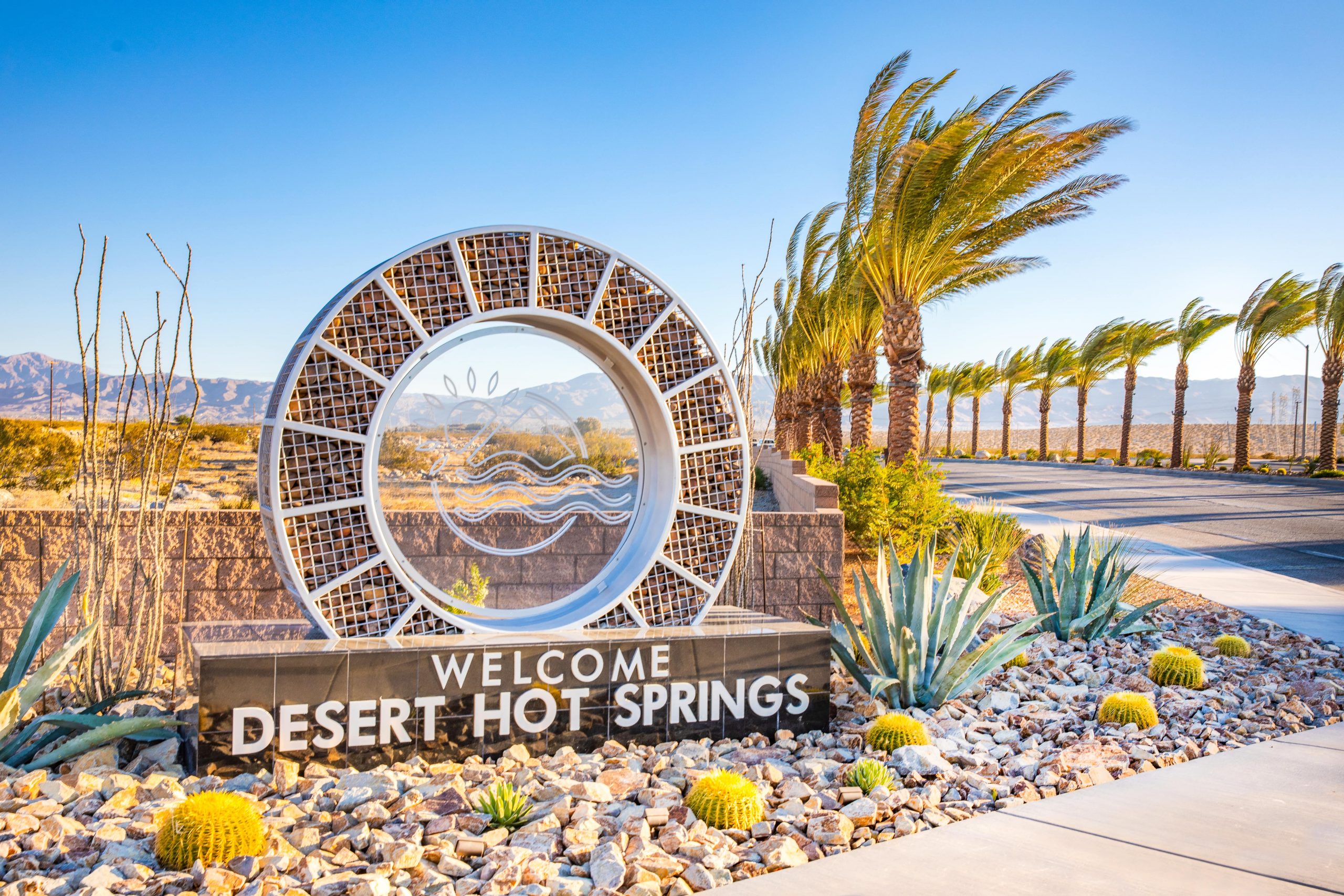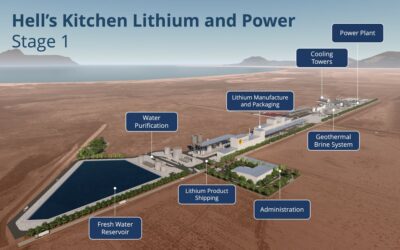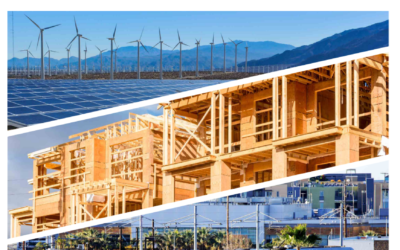Desert Hot Springs voters will soon decide the fate of a proposed one-percent sales tax increase designed to bolster city services and infrastructure as city revenue wanes. This measure, officially titled the “Desert Hot Springs Fiscal Stability/Local Control Measure,” was unanimously approved for the ballot by the city council at their July 2 meeting, aiming for the November 5, 2024 election.
The Council’s action comes soon after the Palm Desert City Council approved a November 5 ballot measure, and the Palm Springs City Council approved a ballot measure also for the November 5 election that would make Measure J (also a one-percent sales tax) permanent. All three of these ballot measures will require a 50% plus one vote in favor to pass.
A fourth potential sales tax increase to hit Greater Palm Springs, considered last week by the Riverside County Transportation Commission (RCTC), did not advance. The RCTC measure called for raising the countywide sales tax from 7.75% to 8.75%. In recent years, Cathedral City, Coachella, Indio, and La Quinta raised their sales tax rates by one percent to 8.75%. Thus, the envisioned RCTC one-percent increase would have hiked their respective sales tax rates to 9.75%.
Financial Strains Prompt Action
Deputy City Manager Doria Wilms presented a detailed staff report that underscored the city’s financial challenges. The report highlighted significant budget shortfalls, worsened by unexpected expenditures such as repairs from Tropical Storm Hilary, the establishment of a new homeless shelter, and the purchase of a former library building from Riverside County. These financial strains were further exacerbated by declining cannabis tax revenues following a council-approved reduction in cultivation taxes to assist struggling cannabis companies.
In March this year, Desert Hot Springs reduced its cannabis cultivation tax by 43.6% after cannabis growers in the city vigorously complained that their overall tax burden was too high, that the market was oversaturated, and the competition was strong from black market suppliers. Other local cities, including Cathedral City, Palm Desert, and Palm Springs, have cut their retail tax rates on cannabis during the past 18 months after businesses in their cities insisted that the taxes were harming their ability to survive for all the same reasons.
According to a city staff report, the decision to lower the tax rate in February was expected to significantly impact the city’s revenue. The new rate was projected to reduce the budgeted revenue for the fiscal year 2023/2024 by $1.9 million, with a further reduction of $2.3 million in revenue anticipated for 2025/2025. These estimates were based on 440,442 square feet of what is referred to as “canopy space” in the cultivation facilities.
To address these deficits, the city has implemented $3.1 million in budget cuts, including a reduction of staff and contract services. However, city officials say these measures are insufficient to close the gap. “Desert Hot Springs is one of the fastest-growing cities in the region, with a population increase of over 25% in the last decade,” said Wilms. “This growth, combined with state mandates and rising service costs, has put immense pressure on our budget.”
The city estimates that the sales tax rate increase if passed by voters, would generate roughly $2.4 million in additional revenue for the city’s general fund.
Measure Details and Community Support
If approved, the one-percent sales tax increase is expected to generate approximately $2.4 million annually. The measure is structured as a general-purpose tax, allowing the city council flexibility in allocating the funds to various critical areas, including emergency services, disaster preparedness, road and bridge repairs, homelessness prevention, and public safety enhancements.
City representatives say that the proposal enjoys broad support within the community, based on a city-conducted survey in which 73% of respondents agreed on the need for additional funding. Over 500 residents participated in the city’s outreach efforts, which included community meetings, mailers, and digital engagement. These consultations revealed strong public demand for maintaining rapid 911 response times, effective crime prevention, and well-maintained public spaces.
Statements from Desert Hot Springs City Councilmembers
During their July 2 meeting, the city council discussed the tax measure for about four minutes before voting unanimously in favor of it. Most of the discussion focused on the fact that Desert Hot Springs voters would decide whether the tax would be imposed.
Mayor Scott Matas stated, “And so our decision here is just to authorize for the voters to make a decision. And I think that we did sufficient polling to get an indication that there’s enough voters out there that want to see this on the ballot. And ultimately then it’s up to all of them. This isn’t something that we’re imposing.”
Councilmember Gary Gardner added, “We have been fortunate to get by in the city without having to have a sales tax for some time. And I think that time has unfortunately closed. This is putting it forward to our voters in our city who will make that decision. It is our voters in our city, not people from other cities that are coming out here to tell us what to do in our city. Our residents get to decide this, and so I’m highly in favor of putting this on the ballot for our residents to make that decision.”
After Councilmember Jan Pye mistakenly stated that the city “if this should pass, we would have to fully disclose what we’re doing, much like the utility tax. So, if it is voted in, I would request that we do it the same way we do it with the utility tax. When the auditor does it, they tell us whether or not we spent it properly.”
Councilmember Russell Betts corrected Pye by stating, “I just want to be clear, the utility user tax and these taxes specify how it’s being used. This is generally for the general fund. So, councilmember Pye’s comments are not limiting this tax. I mean, that’s not in this motion.”
Mayor Matas added, “Which is what I favor, go straight to the general fund. If they’re (Desert Hots Springs voters) unhappy with the way we’re spending something they can let us know that. This is not restricted funds. We’ve got enough of those.”
Next Steps
The city council has also extended its contract with the Lew Edwards Group, a consulting firm, to manage the election’s informational campaign. This includes producing educational materials, conducting community outreach, and coordinating public service announcements to ensure residents are fully informed about the measure.
The city must meet the Riverside County Registrar of Voters’s filing deadline of August 9, 2024, for submitting the final ballot language to secure the measure’s placement on the November ballot.




